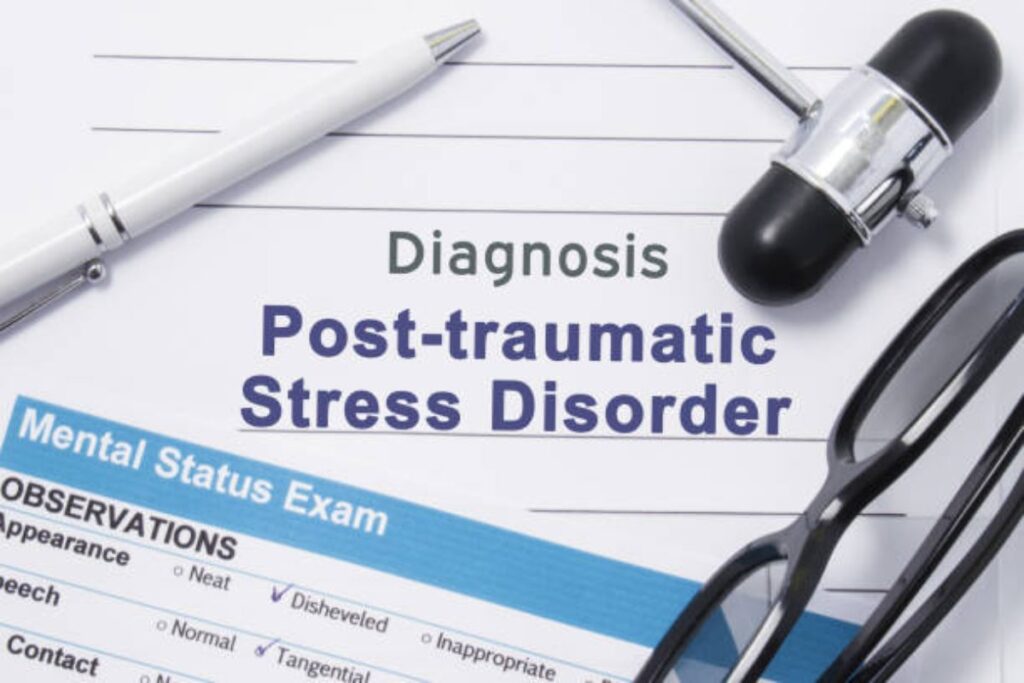Most people want to think of themselves as kind and empathetic people. So, if somebody asked you, “Would you intentionally say something to trigger or invalidate a trauma survivor’s experience?” you’d probably say, “Of course not!” But despite our best intentions, it seems that we often trot out a variety of tired and toxic cliches. These phrases typically come out during our interactions with people who have PTSD. It doesn’t really matter if their PTSD is diagnosed or otherwise, or whether we know about it or not. Because the reality is that anyone can be suffering from any form of trauma. That trauma can be caused by any number of things, including sexual assault, child abuse, and domestic violence. So, let’s take a look at a few specific things that we should never say to someone.
1. “Why didn’t you leave?”
On the surface, this phrase seems pretty harmless. It’s something we might say while watching a show like Law & Order: SVU, while reading a news story about abuse, or– worst of all– when a friend shares their experience with us. Most people who say this don’t mean it in a bad way. As a general rule, when people ask this question, they’re simply expressing disbelief. They’re confused and so they wonder why someone might choose to stay in an abusive situation.
If you’ve never been in an abusive relationship yourself, it’s understandable if you wonder why somebody would stay in a situation that is toxic for them. But the truth is, at the end of the day, no trauma survivor owes anyone an explanation for their story. When people survive traumatic situations and are left to battle PTSD in the aftermath… they’re going through enough already. Even if you’re confused about the details of someone’s story, the reality is that they might be just as confused as you are.
Many trauma survivors struggle with lingering guilt and confusion that surrounds the circumstances of their story. They might spend weeks, months, or even years berating themselves with thoughts like, “I should have left sooner!” or, “Why didn’t I fight back?” These thoughts can cause a great deal of lingering pain and distress. And when trauma survivors hear other people say– even casually– “Why didn’t they leave?” it can be hurtful and triggering. So, if you’re tempted to utter this phrase, try to take a moment and think about the impact that this question can have.
2. “You’re overreacting.”
If you haven’t experienced trauma or PTSD in your life, you may feel confused and weirded out when someone experiences a trauma trigger. If you’re not familiar with the intimate details of someone else’s story, you might be surprised by their response to seemingly insignificant stimuli. For example, if you witness someone having a panic attack as a result of a certain song, name, phrase, or smell, you might be tempted to think “…that?? That did it?”
So, if you’re faced with a response that seems exaggerated or incongruent to you, it’s understandable that you might be tempted to say, “You’re overreacting!” or “It wasn’t that big a deal.” You might mean to invalidate someone else’s experience when you say these things, but sadly, that is the end result. People who are living with PTSD experience hypersensitivity as a result of their trauma. That doesn’t mean that they are weak, overly sensitive, or too emotional. But it does mean that their senses– the senses that are designed to tell us we’re in danger– are operating on a hair-trigger.
So, when someone with PTSD encounters stimuli that remind them of their trauma, they may feel as though the danger is very real and very threatening in that present moment– even if their trauma occurred months or years ago. So, it’s important to remember that people who are fighting PTSD are not overly sensitive or irrational. Most people know that their triggers do not represent real and present danger; they just can’t help feeling threatened anyway. So, if someone you love is experiencing PTSD symptoms, please try to be considerate with your words and avoid saying things that might make them feel worse.
And if you or someone you know is experiencing any of the symptoms on this list, you can reach out for help by taking this free PTSD test from Mind Diagnostics. This confidential and self-guided assessment can help you evaluate the presence of PTSD symptoms in your life and connect you with a therapist who specializes in treating trauma. So, whether you or someone you know is experiencing PTSD symptoms, remember that help is always within reach and that your words can have a powerful impact on someone else’s life.
